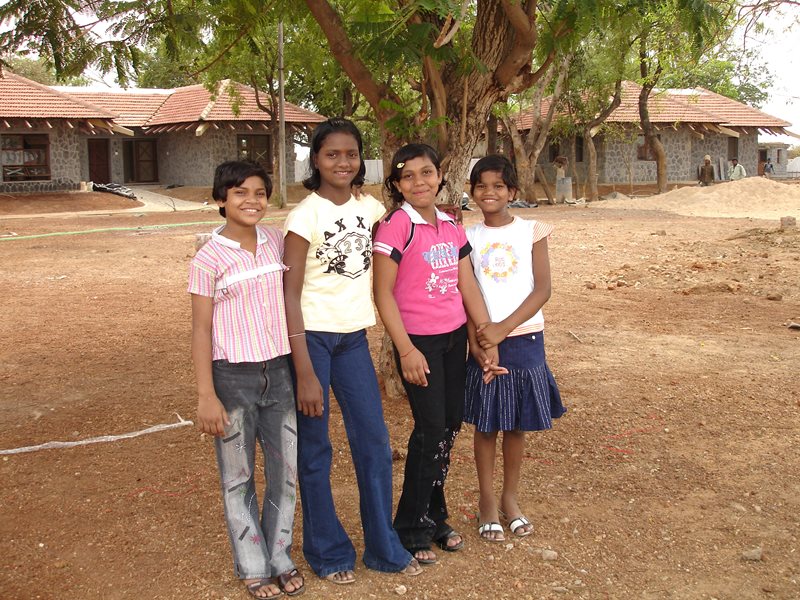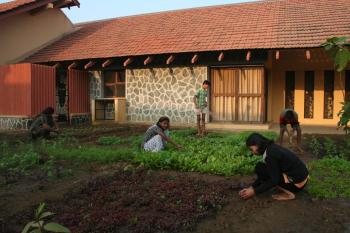A rise in the number of families living in poverty

Friends in the children’s village (photo: SOS archives).
There is, however, an unequal distribution of wealth and, in spite of economic growth and governmental efforts, the number of families living in poverty has nearly doubled in the last ten years.
These poor families live mostly in slum areas; there are dozens of such shanty towns in the city. The housing is precarious, and there is little basic infrastructure such as safe drinking water and sanitation or access to services such as medical treatment and education. In recent years, there have been various government initiatives to improve the lives of the urban poor, but administrative delays mean that thousands continue to live in destitute conditions.
Many of the children who are taken into our programmes are facing multiple hardships. Those who are in family-based care have lost the care of their parents, sometimes to diseases such as tuberculosis, cancer and HIV/AIDS. Others have been abandoned because the parents are not able to meet their emotional and material needs.
Girls are particularly at risk of discrimination and ill-treatment. For example, girls are more likely than boys to drop out of school. Although the average literacy rate stands at a relatively high 86.9 per cent, there is a significant difference between the male rate – 92.4 per cent – and the female rate – 81.1 per cent. Worse still, is the threat of human trafficking as most victims are young girls who are promised work as domestic servants in other cities but are then forced into prostitution.
Working closely with the community, aiming for self-sufficiency
SOS Children's Villages started working in Raipur due to the harsh social and economic conditions many families faced. We approached the provincial government who donated a plot of land in an area called Manna Camp near the Raipur airport. We continue to work closely with local agencies and community-based organisations in order to identify families who are in need of our support.
What we do in Raipur

Children gardening outside their family home (photo: SOS archives).
When children can no longer stay with their families, they can find a loving home with one of the fourteen SOS families, where they grow up with their sisters and brothers. The children attend the local kindergartens and schools, thus making friends with children from neighbouring families and integrating into the community. Children from local families also participate in festivals that we organise. When the young adults are ready to leave their SOS families they can join our SOS Youth Programme. With the support of qualified professionals they are guided through this new stage of their lives, as they start vocational training courses, attend higher education and look for work. The young people are encouraged to develop perspectives for their future, learn to shoulder responsibility and increasingly make their own decisions. There is also an SOS Vocational Training Centre, where young people are trained as electricians, welders, plumbers, masons or car mechanics, and to work in IT.